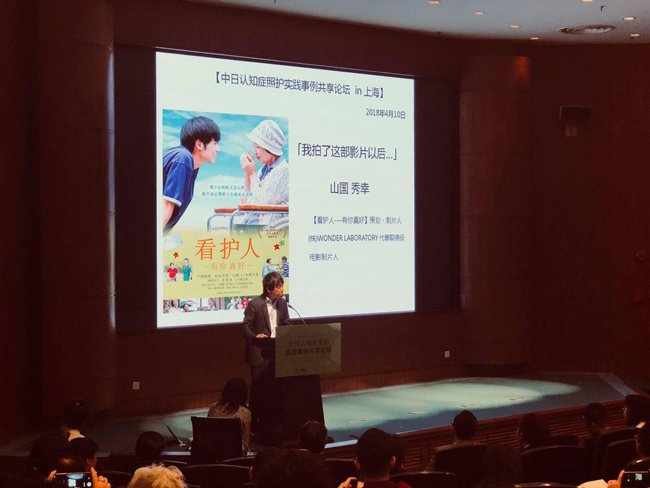
China: Japan’s long-term care movie highly acclaimed: East China Normal Univ:
Japan’s long-term care movie:
has been highly acclaimed and used as a reference in the Chinese long-term care industry.
Recently, a Japanese movie has become a hot topic among people in the Chinese long-term care industry.
“It touches the hearts of those who watch the movie and continues to be spoken among the caregivers.”
China’s elderly population is 250 million:
China has become rich due to rapid economic development.
At the same time, the “one-child policy” implemented for 36 years is accelerating the declining birthrate and aging population.
Currently, the elderly population aged 60 and over has reached “250 million, which is twice the population of Japan.”
“Among them, the number of elderly people with dementia” is estimated to be 10 million.
Movie: “Keanin-I’m glad you were”
Production: Wonder Laboratory,
Draft: Executive Producer Hideyuki Yamakuni)
A movie that was screened in Japan in 2017 and attracted attention among medical and long-term care workers.
This movie was made based on a true story.
A well-known long-term care company in Japan “modeled on a small facility of’Aoiikea'”
The effect of the movie is enormous:
The effect of this movie is enormous in China.
In China, some young people are aiming for long-term care, which has a strong influence on young people’s employment orientation.
Current status of dementia care and long-term care in China:
Except for big cities such as Beijing, the current situation is that “most long-term care facilities refuse to move in elderly people with dementia.”
This is because “the reason is that we do not want to take risks such as abuse and accidents by care workers.”
The current situation is that “I can’t bear” rather than “I don’t want to bear”.
This is because it would be a big deal if a family member filed a lawsuit.
Insufficient dementia care and know-how:
Nursing care facilities in China still lack knowledge and know-how in dementia care.
“Dementia” has been seen with “discriminatory eyes” in China.
The family thought that if their parents had dementia, they wouldn’t want to be known to their neighbors.
They lock themselves up in their homes for fear of their parents wandering around.
Long-term care insurance system in China:
“In China, a social security system like Japanese long-term care insurance” is not in place.
“Payment for long-term care services is fully self-paid.”
“Keanin” released in China:
This movie has shaken the souls of many people in China.
This movie was first screened at the Japan-China co-sponsored long-term care exchange event held in Shanghai in 2018.
“East China Normal University” Large Hall:
It was a great success so that you could stand up.
Many people cried loudly as they heard sobbing voices from all over the venue.
After that, many introductory articles and impressions of the movie were posted and spread on SNS in China.
However, this movie is not open to the public.
Most are screened at long-term care-related events and workshops.
Shanghai, long-term care administration officials:
I want this movie to be watched not only by long-term care workers, but also by the elderly, their families, us government officials, and everyone else.
Not just about dementia care
Human ethics, values,
Family ties, the meaning of living,
What is a relationship, etc.
This movie taught me many things.
Special Report | Diamond Online